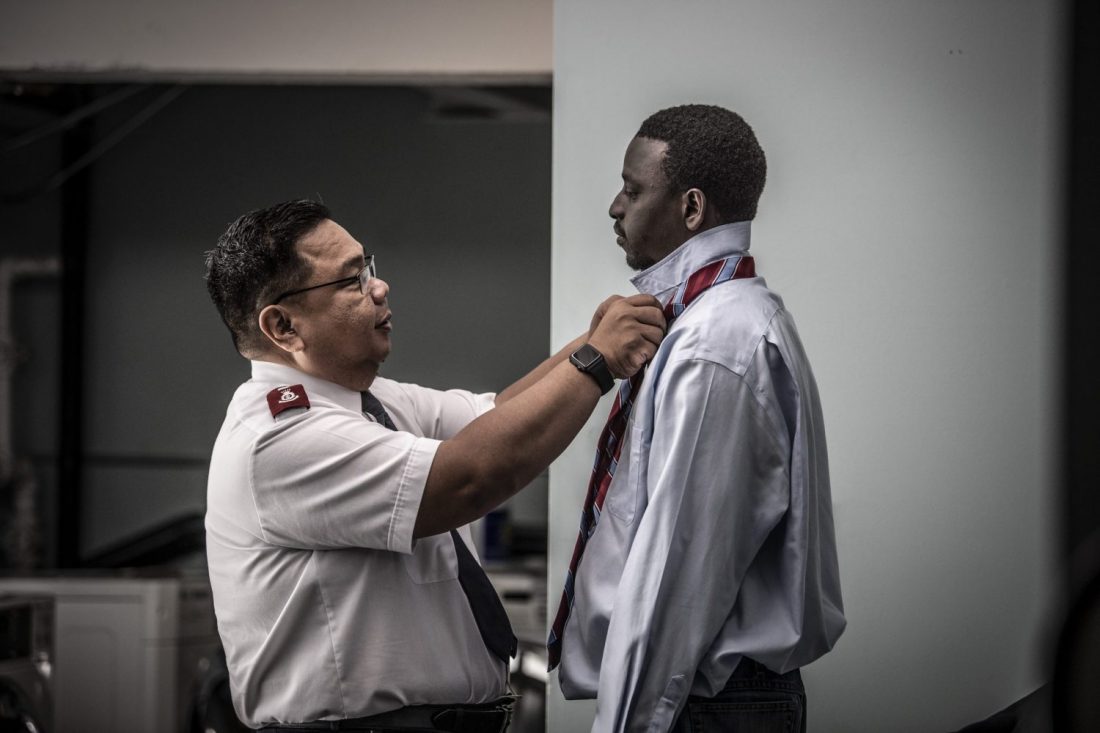Children are notorious for asking questions, all kinds of questions. Questions about where babies come from, questions about why things are the way they are, and questions about what happens when you die. None of these questions are easy, and they almost never come at a time when we’re prepared to answer them.
When it comes to questions about death, parents are quick to want to assure their children that there’s nothing to worry about or fear. The only problem is: that’s not actually true. Most everyone has some degree of fear when it comes to death, and no one can say with total certainty what happens when you die.
Christians are particularly prone to talking about life after death as a type of party or celebration. I can hear the old, popular children’s song about heaven from my youth: “It’s a big, big house, with lots and lots of rooms. And a big, big yard, where we can play football!” Sadly, for me, I always hated football, so this song didn’t provide me with any excitement about what was waiting for me when I died. What’s more, the concept of “eternity” gave me more dread than promise. I would routinely get sick over the idea of time without end. What was meant to give me hope, gave me fear.
When I shared my fear about death with my parents or my church leaders, they’d swoop in to rescue me and tell me, through fake smiles, that I should be excited about death. I get to be with Jesus, they’d say, and if I was given the choice, I’d never want to come back to earth. This just added guilt to my fear, compounding my anxiety about the whole thing.
It’s not a bad thing to want to assure our children that it will be ok when they die, but it’s important that our words of assurance aren’t actually rooted in an anxiety we’re trying to hide. Children are impeccable at discerning truth, so more often than not, they’ll know if we’re not being honest.
Years ago, I was standing in my front yard talking to my 5-year-old neighbor who had just lost her cat. “My mom tells me he’s in heaven now,” she said, “and one day I’ll be there too and will see him again.” I could see the sadness in her face. I asked her, “How do you feel about that?” She said, “Sad. I actually don’t want to go to heaven. I really like it here.” I smiled and said, “I do too.”
So, if we want to be honest and helpful to our children, what can we actually say about life after death? As it turns out, a lot of what Evangelical Christianity says about “heaven” isn’t rooted in Scripture, but the influence of Western culture rooted in Greek mythology. So, what are we to do?
Perhaps the old adage “less is more” applies well here. Faith isn’t about certainty but surrender to mystery. Death is our last submission to what we don’t know, our last yes to a faith we cannot see. Instead of bombarding our children with false assurance or with a pressure to look forward to death, let’s retreat to what our faith promises us: in life and death, God is there.
In Romans 8, the Apostle Paul assures us that nothing can separate us from the love of God in Christ Jesus—nothing present and nothing to come. In life and in death, God and God’s love is there.
When my children ask me what happens when they die, I say this: You go to God. I give that answer, because I believe it to be true, and because it leaves space for the mystery of everything else. What’s amazing is that the answer suffices. The stress we carry to give our children the right answer that solves all their doubts and fears is not only futile, but often unnecessary. I’ve found that this answer is enough. My children still have concerns, but they don’t carry the same anxiety I did as a child, partly because I’m not trying to persuade them to believe in something I can’t guarantee. To normalize a child’s fear is sometimes the best thing you can do. Death is a normal thing to fear, and children shouldn’t feel guilty if they’re afraid of it. But what they should know is, despite their fear, God is still there. That nothing in the universe, nothing in life and death, nothing present and nothing to come, can separate them from God.
Where do we go when we die? We go to God.
Taken from “My Love, God Is Everywhere” (Thomas Nelson, 2023) by Victoria Robb Powers and Cameron Mason Vickery. Used with permission.
Do Good:
- Read “My Love, God Is Everywhere” (Thomas Nelson, 2023) by Victoria Robb Powers and Cameron Mason Vickery. Inside this picture book for 4- to 8-year-olds, you’ll encounter God’s unlimited presence and unconditional love in a way that helps kids discover God in all parts of creation, from the mountains to the anthills and, most of all, in our hearts amid joy, sadness, calm and chaos.
- Get on the list for Good Words from the Good Word and get a boost of inspiration in 1 minute a day with a daily affirmation from Scripture list this sent straight to your inbox. It’s an email to help you start your day with goodness.
- Could you use a meeting with God not to get more from him, but to discover more about who he is and his heart for you? Get inside the Caring Magazine Scripture Study Collection and find a suite of free, printable Bible studies to help you start your day with hope, meet God over lunch or end your evening connected to your Creator.















